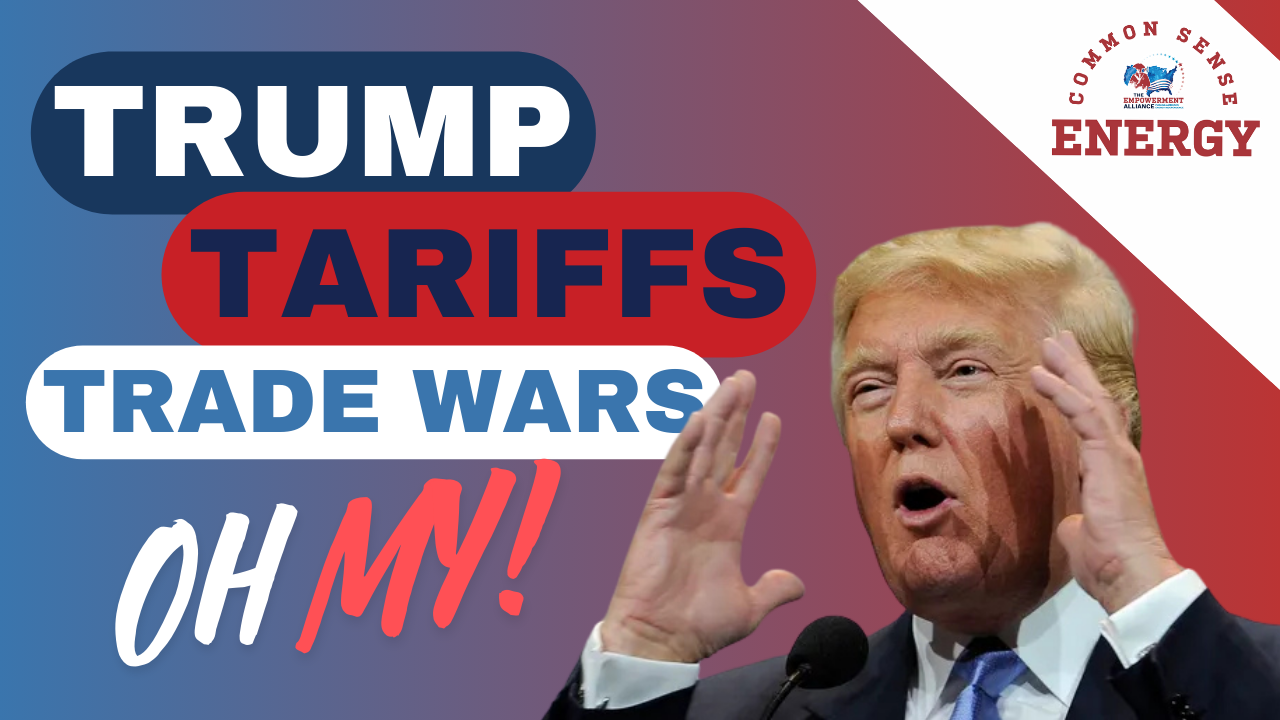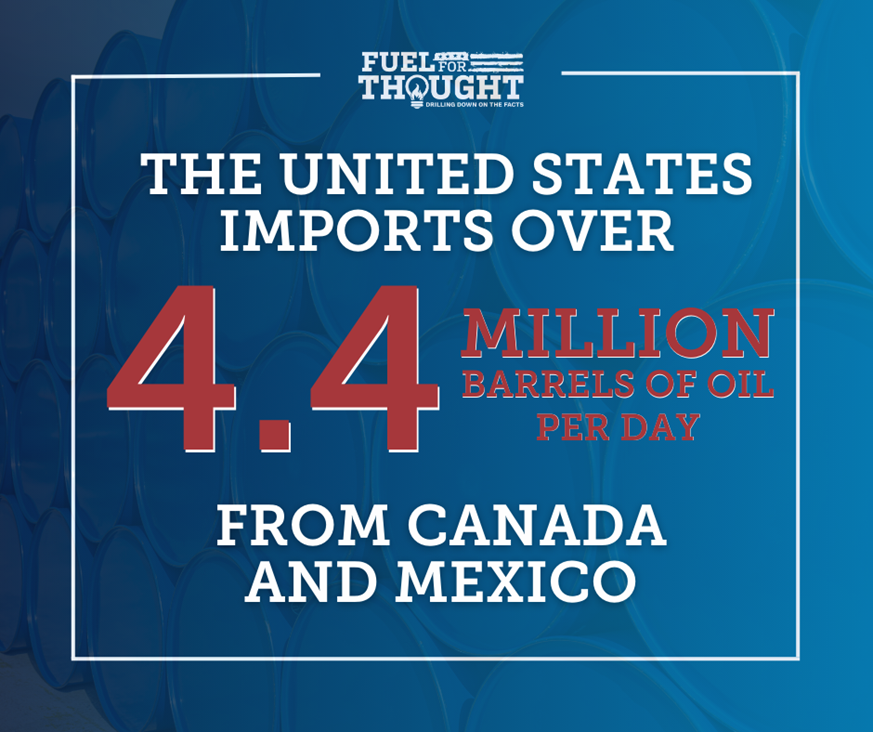
Trump, Tariffs, Trade Wars, Oh My!
February 7, 2025
February 7th, 2025

- Stay up to date on all things energy by visiting the TEA Newsroom.
- America needs Affordable, Reliable, Clean energy security.
- Eleven years after opening, a massive solar plant faces a bleak future.
- Developers want a new natural gas power plant to fuel Ohio’s data centers.
- Tesla’s car registrations plunged in California last year.
- New Jersey governor gives up on new offshore wind.
- Natural gas key to Arizona’s energy future, says utility regulator.
- Trump’s funding freeze confounds climate groups.
- South Korea set to import 7 million tons of U.S. LNG annually.
- Trump reinstates ‘maximum pressure’ campaign against Iran.
- Trump halts permitting for renewable projects on public lands.

The issue: President Trump continues to be an America-first president, a position that we greatly admire and support. Immediately after being sworn in to a second term, he declared an energy emergency to unlock additional powers to jump-start domestic production.
“America will be a manufacturing nation once again, and we have something that no other manufacturing nation will ever have, the largest amount of oil and gas of any country on Earth, and we are going to use it,” Trump promised.
This week Interior Secretary Doug Burgum re-affirmed that stance as he was sworn into his position.
Why it matters: The U.S. struck last-minute deals with Mexico and Canada this week to delay new tariffs, after Trump had separate calls with the leaders of both nations.
The real answer to this energy emergency lies not in tariffs, but in implementing the ARC Energy Security Act, which is model legislation introduced last year by The American Legislative Exchange Council (ALEC). This common sense energy approach will solve the energy emergency today and any that may arise in the future.
Consider: Canada and Mexico are allies and trusted partners. Canada, in particular, is an important trade partner, as this piece illustrates.
The adage, “You catch more flies with honey than you do with vinegar,” certainly applies here as President Trump exercised diplomacy and restraint in dealing with this thorny issue. He understands that America’s role is to embrace its “little brothers” to ensure the success of all North American family members on energy, border security, the economy and other issues of mutual importance.
With a new energy Dream Team in place, led by Energy Secretary Chris Wright, EPA chief Lee Zeldin and Burgum, it’s time to unleash affordable, reliable clean energy, led by natural gas. This trio will lead American energy to new heights.
They also can assist Elon Musk and the newly formed Department of Government Efficiency’s (DOGE) efforts as that agency seeks to eliminate wasteful programs and spending. Less red tape and bureaucracy equals more affordable, reliable and clean energy production — and lower prices for American households and businesses.
Bottom line: Canada and Mexico are two of our closest allies and trade partners. Oil imports from our North American neighbors help keep American gas prices affordable, and President Trump must keep that in mind when negotiating.

The issue: Regarding tariffs, China is a different story altogether and requires a much tougher stance.
Why it matters:
- Taking effect on Tuesday, President Trump slapped a 10% tax on all imported goods from China, the third-largest U.S. trade partner.
- The Chinese response was swift, placing a 15% tariff on coal and liquefied natural gas, and a lesser tariff on other goods.
- This emerging trade war with Beijing poses a new threat to billions of dollars in planned U.S. liquefied natural gas (LNG) export projects. It is critical because many rely on China as a key buyer.
The threat reflects the double-edged nature of Trump’s protectionist policies, which are intended to boost American business and also force action to stop drug trafficking and illegal immigration.
Consider: The Chinese tariffs target at most $20 billion of the country’s annual imports from the U.S., about 12% of the total, a far cry from the more than $450 billion in Chinese goods being targeted by the U.S.
But those tariffs are expected to have a negative impact on U.S. LNG exports.
Charlie Riedl, the Executive Director of the Center for LNG, a trade group representing many U.S. LNG exporters and developers, said China’s decision to impose tariffs injects uncertainty into the industry and weakens America’s competitive position in global energy markets.
Bottom line: The domestic energy industry will feel the sting of China’s tariffs on American LNG and coal, but the biggest loser is China who will have to pay more for energy imports or find a new trade partner.



Hearing On American Offshore Energy: On Tuesday, February 11, the House Natural Resources Subcommittee on Energy and Mineral Resources will have a hearing on “Restoring Energy Dominance: The Path to Unleashing American Offshore Energy.”
Hearing On Carbon Capture: On Wednesday, February 12, the Senate Environment and Public Works Committee will have a hearing to examine advancing carbon capture, utilization and sequestration technologies and ensuring effective implementation of the USE IT Act.

“We are committed to unlocking America’s full potential in energy dominance and economic development to make life more affordable for every American family while showing the world the power of America’s natural resources and innovation.”
Interior Secretary Doug Burgum on X.